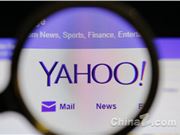YouTube introduced a generative AI feature last year that can create music in the style of renowned artists such as Charli XCX, John Legend, and T-Pain. Now, the video platform is seeking agreements with major record labels to replicate more musicians.

According to the Financial Times, the Google-owned platform is offering a "lump sum of cash" to Universal Music Group (UMG), Sony Music Entertainment, and Warner Records in exchange for licenses to legally train its AI music tools using their songs.
YouTube stated that it does not intend to expand Dream Track—supported by only 10 artists during the testing phase—but confirmed that it "is in talks with record companies about other experiments." The platform plans to obtain music licenses from "several dozen" artists to train new AI tools scheduled for release later this year. The amount YouTube is willing to pay for these licenses has not been disclosed, but it is reported that it could be a one-time payment rather than a royalty-based arrangement. Either way, artists and the record companies that represent them may need some convincing.
Sony Music has repeatedly warned AI companies "not to use" its content without permission, while Universal Music temporarily removed its entire catalog from TikTok due to inadequate protection of AI-generated music, leading to the breakdown of licensing negotiations. In January, over 200 artists, including Billie Eilish, Pearl Jam, and Katy Perry, called on tech companies to stop using AI to "infringe upon and demean the rights of human artists."
Just days after these discussions, the Recording Industry Association of America (RIAA), representing labels such as Sony, Warner, and Universal, filed copyright infringement lawsuits against two leading companies in the generative AI music field. The record companies claim that the output from Suno and Udio was produced through "mass unauthorized duplication of recordings," and RIAA is seeking damages of up to $150,000 for each infringement.
Key Points:
⭐ YouTube is seeking agreements with major record companies to use their songs for training AI music tools
⭐ Record companies are cautious about the protection of AI-generated music and require YouTube to provide sufficient persuasion
⭐ The Recording Industry Association of America (RIAA) has filed copyright infringement lawsuits against two generative AI music companies, seeking substantial damages










